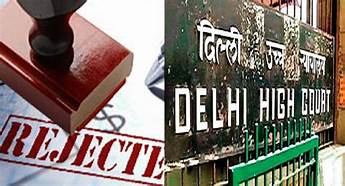PRERMANENT
EXEMPTION OF ACCUSED IN SUMMON CASE
In a criminal cases, the accused persons are
required to appear in courts, whether in F.I.R cases or in complaint cases
after summoning. However, in apt cases, more particularly, in complaint cases,
the accused may be exempted from personal appearances, permanently, if there
are compelling reasons of that and if the courts are satisfied to that effect. Though,
permanent cannot be claimed as a matter of right. Even when the permanent
exemption is granted to an accused, certain conditions are laid down so as to
ensure that the proceedings are not stalled. An application under Section 205
of Cr.P.C is generally moved for exemption from personal appearance for the
concerned day before the courts of Judicial Magistrate or Metropolitan
Magistrate, as the case may be. Similarly, section 317 of Cr.P.C deals with
permanent exemption in the Court of Sessions. The exemption for a day or longer
exemption may be granted by ld Sessions Court. The issue of permanent exemption,
essentially relates to summons cases, more particularly, in complaints u/s 138
of Negotiable instruments Act and such application for permanent exemption is
preferred before the court of Magistrates u/s 317 of Cr.P.C
Before going further, it may be worthwhile to cull
out the provisions regarding exemption to the accused after summoning and
during trial. To begin with, Section 205 of Code of Criminal Procedure for
seeking day to day exemption is reproduced herein:
Magistrate may dispense with personal attendance of
accused
1. Whenever a Magistrate issues a summons, he may,
if he sees reason so to do, dispense with the personal attendance of the
accused and permit him to appear by his pleader
- But the Magistrate inquiring into
or trying the case may, in his discretion, at any stage of the
proceedings, direct the personal attendance of the accused, and, if
necessary, enforce such attendance in the manner hereinbefore provided.
Similarly, provisions under Section 317 of Cr.P.C
is much wider as the provision does not merely contemplate a court of
Magistrates, but includes all other judges. The provision is as under
317. Provision
for inquiries and trial being held in the absence of accused in certain cases.
(1) At any stage of an inquiry or trial
under this Code, if the Judge or Magistrate is satisfied, for reasons to be
recorded, that the personal attendance of the accused before the Court is not
necessary in the interests of justice, or that the accused persistently
disturbs the proceedings in Court, the Judge or Magistrate may, if the accused
is represented by a pleader, dispense with his attendance and proceed with such
inquiry or trial in his absence, and may, at any subsequent stage of the
proceedings, direct the personal attendance of such accused.
(2) If the accused in any such case is not
represented by a pleader, or if the Judge or Magistrate considers his personal
attendance necessary, he may, if he thinks fit and for reasons to be recorded
by him, either adjourn such inquiry or trial, or order that the case of such
accused be taken up or tried separately.
Recently, the hon’ble Supreme Court in 1 2022
LiveLaw (SC) 394 MAHESH KUMAR KEJRIWAL & ANR. VERSUS BHANUJ JINDAL & ANR
in (Special Leave to Appeal (Crl.) No. 3382/2022) has dealt with the issue of
permanent exemption to the accused. While so doing, reliance was placed on M/s Bhaskar Industries Ltd. v. M/s Bhiwani
Denim Apparels Ltd.: (2001) 7 SCC 401, which is a precedent in this regard. It is held in paragraph no.17 of the
judgment that:
“ 17. The Magistrate is
empowered to record the plea of the accused even when his counsel makes such
plea on behalf of the accused in a case where the personal appearance of
the accused is dispensed with. Section 317 of the Code has to be viewed in
the above perspective as it empowers the court to dispense with the personal
attendance of the accused (provided he is represented by a counsel in that
case) even for proceeding with the further steps in the case. However, one
precaution which the court should take in such a situation is that the said
benefit need be granted only to an accused who gives an undertaking to the
satisfaction of the court that he would not dispute his identity as the
particular accused in the case, and that a counsel on his behalf would be
present in court and that he has no objection in taking evidence in his
absence. This precaution is necessary for the further progress of
the proceedings including examination of the witnesses".
In The Bhaskar
Industries (Supra) the hon’ble Supreme Court has further held that:
"The normal rule is that the evidence shall
be taken in the presence of the accused. However, even in the absence of the
accused such evidence can be taken but then his counsel must be present in the
court, provided he has been granted exemption from attending the court. The
concern of the criminal court should primarily be the administration of
criminal justice. For that purpose the proceedings of the court in the case
should register progress. Presence of the accused in the court is not for
marking his attendance just for the sake of seeing him in the court. It is to
enable the court to proceed with the trial. If the progress of the trial can be
achieved even in the absence of the accused the court can certainly
take into account the magnitude of the sufferings which a particular accused
person may have to bear with in order to make himself present in the court in
that particular case."
The bare perusal of above shall display that hon’ble
Supreme Court has categorically held that generally blanket exemption from
personal appearance of accused is not permitted. However, in apt cases craving
for such order the Magistrate can allow an accused to make even the first
appearance through a counsel, though, such discretion has to be exercised
rarely and with a view to do substantive justice and there ought to be good
reasons for dispensing with the presence of the accused.
In Mahesh
Kumar Kejriwal (Supra) the Special leave Petition was preferred against Punjab
& Haryana High Court judgment which refused petitioner's claim of blanket
exemption from personal appearance in a complaint under Section 138 of
Negotiable Instruments Act. The hon’ble Supreme Court has held referring to Bhaskar
Industries Ltd (Supra) that as the said decision was cited before the High
Court too and the High Court has rightly indicated that the Supreme Court was
not dealing with a claim for blanket exemption from personal appearance in that
case. It was further held that Bhaskar Industries (Supra) judgment was passed
in respect of the facts of the said case. Though, in an appropriate case the Magistrate can
allow an accused to make even the first appearance through a counsel, but it
was clearly indicated that such discretion needs to be exercised only in rare
instances and there ought to be good reasons for dispensing with the presence
of accused.
It is observed that Bhaskar Industries (Supra) was often relied on behalf of the
accused to canvass that even notice cannot be framed against the accused, once
permanent exemption is granted and in any event presence of accused shall not
be necessary, even if notice is to be framed u/s 251 of Cr.P.C. The predicament
was answered by hon’ble Delhi High Court in Kajal Sengupta V
Ahlcon Ready Mix Concrete Ltd Crl M.C
1640/2011 dated 27.04.2012:
"11. The concept and
purpose of securing bail by the accused person from the concerned Court is mutually
exclusive to the purpose of grant of personal exemption from appearance. It is
a part of court proceeding when a person is enlarged on bail by the Court, with
an undertaking to the Court he, being an accused in the offence, shall attend
the Court during trial. Furnishing of bail bonds and surety, by the accused,
ensures that the accused shall abide by the conditions of bail and any
subsequent order of the Court requiring his attendance in Court. On the other
hand, personal exemption from appearing can be requested by the accused to the
Magistrate, either permanently or on a particular date. The Magistrate may,
subject to certain conditions and directions, allow the personal exemption of
the accused. However, such permanent personal exemption cannot be construed or
understood to be a blanket order dispensing with the appearance of the accused
and shall be subject to Section 205(2) and Section 317 (1) of the Cr.P.C. Now, if at any subsequent
stage, the Magistrate desires the presence of the accused person, he may summon
him to appear in person, and in failure to do so, he may take coercive steps
by forfeiting the bail bond or attach his movable property. This
procedure, could only be effective if the accused had previously surrendered to
the Court and obtained bail by furnishing bail bond and surety. The two
proceedings, which are apparently independent, seem to converge at this
juncture.
Therefore, the processes of bail and
personal exemption from appearance, broadly operate in different spheres of the
trial, though are intrinsically connected."
REMARK
The conclusion that
emerges from the aforesaid precedents is that generally exemption may be
granted for a day, but, accused could be exempted permanently as well, through counsel,
if duly appointed and by analogy the counsel shall have necessary authorisation
to get even a notice u/s 251 of Cr.P.C served upon him as the
counsel statutorily personates the accused for all intents and purposes. If
seen from the above backdrop the words "accused" in Section
251 CrPC is not limited to the person of the accused, but may
include a pleader where he is permitted by the court to appear through him. However,
what, if the counsel refuses to get the notice served upon him that will imply that
the accused has not been represented and therefore in such a situation, the
presence of accused is to be secured so as to continue with the trial. The
accused thus shall have to appear for the purpose of framing of notice. In any
case, law and procedure that has evolved in sync with Bhaskar Industries (Supra) that whereas, permanent exemption could
be granted to accused in apt case or cases, and the accused can even be
exempted from first appearance, but with a view to continue with the process of
trial, if and when presence of accused shall be necessary, the courts of
Magistrate is empowered to secure presence of accused, such as for furnishing
bail Bonds, framing of notice and statement of accused and permanent exemption
shall not be construed to mean blanket exemption from personal presence of accused.
--------
Anil K Khaware
Founder & Senior Associate
Societylawandjustice.com













